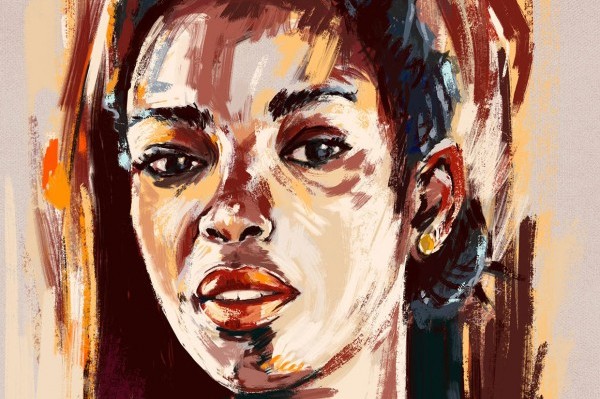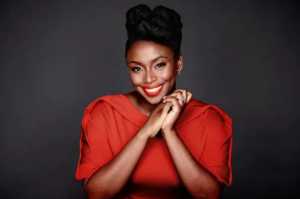Two months ago, I broke the news to you that a Cameroonian author sold her debut novel, titled The Longings of Jende Jonga, to Random House for a million dollars.
Amidst the excitement that Mbue’s million-dollar advance caused in the African literary community, there was much wonder about who this breakout novelist was. It turns out that we knew and still know very little about her. At the time she sold the manuscript, she was an unpublished writer.
Sometime in December of 2014, Mbue’s first ever published work came out in the winter issue of The Threepenny Review.
If you’re like me, you probably curious about her writing. What does the writing of a million-dollar debut novelist look like?
You’ll find an excerpt of the story titled “Emke” right after the image. It is a melancholy account documenting the last days of a man dying of a wasting disease. What I can tell you from reading this short story is that Mbue is a gifted writer.
Stay tuned for more news about her and her work!
*****************
It is a disease of the blood, the doctors told him.
He didn’t ask many questions—he knew about the disease more than some who came in to treat him. He knew that blood is the river of the body and with his being contaminated, his body might soon shrivel up and die like plants on a dried river bank. He knew this truth and yet he showed no great sorrow at the news, only a frail optimism. Bolow and I stayed by his side in those first days, watching as esteemed experts came in pairs and threes and sometimes enough to form a half moon around him. They asked him questions about his appetite, his sleep, his excrements. They read notes in his chart, listened to the beatings of his body, whispered to each other, and left the room with their heads down. The medicine, which the nurses put in through veins in his arm and back, made him drowsy but his sleep was light, ending when he awakened hot and sweaty from nightmares fueled by too many chemicals pumped into his body. After he had toweled off, he would tell us about the nightmares. In one, he was given a glass of blood by a hand without a body, and asked by a baby’s voice to drink it all in one sip. In another, he saw his head on a tray, laughing at him. Over the course of a few weeks, he became lean, then skeletal. His friends filed in and kept his spirits high and he kept theirs high too. When we left his presence we cried, for we saw on that bed a man whose mind and soul were well but whose body appeared to have lost half its contents.
He made a rule for all who came to visit him: no crying. What are you crying for, he would ask us with a short laugh. Yes, what are we crying for, we would ask ourselves. This, after all, was Emke. He was going to be a healer of others. Why would he not heal himself? He wanted to become a doctor because he was certain that to give a man good health was to give him a life worth continuing. Good health for all, he always said, is what Africa most needs. The talk about the future of Africa resting on the institution of exemplary democracies amused him. Such fancy Western ideologies will never take root among our people, he often said. To him, all men were not equal and so all votes should not carry equal weight. Because the old are wiser than the young, their votes had to be given greater weight. Because the rich are more powerful than the poor, their votes had to be seen as mightier. Shouldn’t all this be admitted and tabulated, he always argued. And what about the tribal lines that run across African countries too small to bear them all? Such lines push voters to choose candidates not on the merit of their intellect but on the belief that having a leader from one’s tribe was a sure way of getting the roads to ancestral villages tarred, and who wouldn’t want that? The hypocrisy of the West, he would scoff. In what planet are all men equal? Even in America, this great country, this perfectly democratic nation, the rich are elevated over the poor and youth is celebrated over age. So no, he would say, what we need back at home isn’t some absurd imported idea of government but a chance to live in good health and govern ourselves as we see fit.
Ah, Emke. Marvelous Emke.
We will not soon know life without him, we told ourselves. We convinced each other that his disease was only a passing aberration, and he convinced his parents likewise. He told them to stay home and wait for he would be coming to visit soon after his release from the hospital. Perhaps out of the hope which only parents have, the hope that their offspring will outlive them, or perhaps because they trusted him, they stayed in Africa and missed their chance to watch him battle that despicable illness.
But I couldn’t miss any chance.
I was with him every free hour I had. I sat on the chair to his left and stared at him as he slept, waiting for his eyes to open again. When they opened, I told him who had come to see him, and what wishes and gifts they’d brought for him. Most times he simply nodded and went back to sleep, back to the place of the bloodcurdling dreams. On the days when he stayed awake, we spoke in whispers about flimsy subjects: the purple shoes one doctor was wearing, the tastelessness of the hospital food, Bolow’s new haircut. His disease sat between us, like an August forest fire, burning away. With every glance at him my heart enlarged, overcome at the beauty he was even in his state of ugliness. I longed to grab him and hold him and ask him to take me with him if he must go. Other times I yearned to run off with his shrinking body, and heal him in a way I believed only I could. Always, I wished he could see me sitting by his bed and feel something different towards me—something close to what I felt towards him—but I could see even on his closed eyes that it was not there. I had no claim to him. The woman who could claim him as her own could only sit in Sierra Leone and wait for news of his recovery.
There would be no such news for he died in his sleep on a rainy night…Read more
******************
Post image by Namibian illustrator, Nambowa Malua via African Digital Art. Check out more of this work HERE.










Wall Street Journal Unveils the Face Behind Africa’s Most Anticipated Novel – AllMagNews January 16, 2016 10:50
[…] fell in love with her writing when we read “Emke.” [click here if you missed it.] But the photographer Kiriko Sano has captured a radiant beauty that is making us […]